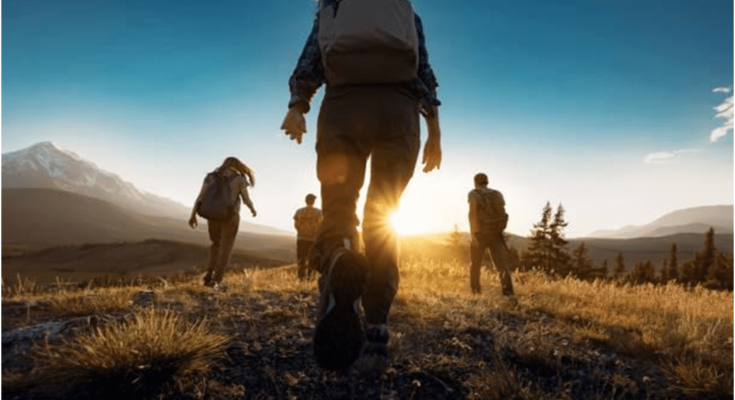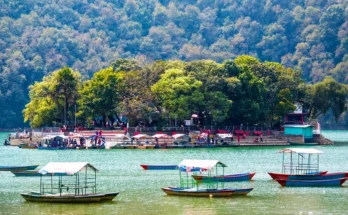Are you looking forward to trekking or hiking? If yes, you should take some precautions before participating in such activities. There are specific injuries that you must avoid at all costs. This article will discuss seven injuries to avoid for a smooth trekking experience.
Hiking and trekking are great ways to get out into nature and enjoy the outdoors. They also provide an excellent opportunity to explore new places and meet new people. However, they come with their share of risks. Some common dangers include slips, falls, dehydration, heatstroke, hypothermia, and drowning.
7 Injuries You Must Avoid For A Smooth Trekking Experience
1. Blisters
The most common trekking injury is blisters. They occur when there’s friction between your skin and poorly fitting socks. So, you could get a blister if you don’t have proper trekking equipment.
When you’re hiking, make sure your boots fit correctly. They should feel snug without being tight. Wear comfortable socks that don’t slide around. And remember to keep your feet dry before putting on your shoes.
If you do develop blisters, treat them immediately. Warm the tip of your knife until it’s red, then use it to pry open the blister. Once it’s popped, apply antiseptic cream to the area and cover it with a sterile dressing. Leave it alone for 24 hours, then repeat the process.
While we can avoid this unfortunate situation by getting the right equipment, people prefer to ignore them. The proper equipment ranges from subscription boxes to the right clothing gear. However, getting the subscription box is essential, as it contains almost all the necessary items.
From one of the high quality outdoor subscription boxes to merchandise and gear, every box is hand-picked by outdoor experts. Not only do their monthly subscription boxes offer cool gear accessories, but they also provide an enthusiast with 4 packages without sweat – Basic, Advanced, Pro, and Pro Plus.
2. Sunburn
Sunburns happen when you expose yourself to direct sunlight for too long. It occurs when your body doesn’t produce enough vitamin D. When you hike, be careful not to overexpose yourself to the sun.
Use sunscreen every time you go outside. Sunscreen blocks the sun’s damaging rays. So, apply them 30 minutes before you go outside, and reapply every 2 hours.
Also, wear protective clothing. Covering exposed areas like the eyes, arms, and legs helps prevent burns.
3. Hypothermia
Hypothermia happens when your core temperature drops below 95 degrees Fahrenheit. It causes shivering, numbness, and confusion. People often refer to this form of frostbite as “the silent killer” because people are unaware that they are suffering from hypothermia until it is too late. However, you can avoid hypothermia by drinking a lot of water.
Also, stay warm. Dress appropriately for the weather conditions, and don’t forget to bring extra layers of clothes.
4. Sprains
A sprain usually happens when you land awkwardly on your feet or knees. When you do this, your leg muscles contract, causing the kneecap to move inward toward the center of the joint. This causes the ligament connecting the thigh bone to the shinbone to pull tight, making the knee feel painful and stiff.
If you suffer from a sprain, don’t panic; ice it immediately. Then, wrap it in a compression bandage, and change the bandage frequently.
5. Muscle Cramps
Muscle cramps happen when your muscle fibers contract involuntarily. This makes your muscles feel weak and sore.
The most common cause of cramps is dehydration. This occurs because your body loses salt while you sweat. When this happens, the fluid levels in your blood drop, causing the water pressure inside your cells to rise.
As a result, the cell walls begin to swell, making the cells smaller and tighter. This causes the muscles around the affected area to contract, resulting in a painful cramping sensation.
To prevent muscle cramps, drink plenty of fluids before trekking. Also, eat potassium-rich foods like bananas, oranges, and spinach.
6. Insect Bites
Insect bites occur when an insect stings you. They usually itch, but some people experience pain instead. Insect bites could cause severe injuries if care is not taken. They include mosquito bites, bee stings, and wasp stings.
Mosquitoes carry diseases like malaria and dengue fever. Bee stings can lead to anaphylactic shock. And wasps sting more than other insects because their venom is more potent. When you’re hiking, keep your distance from wild animals. If you see any animal, leave it alone. Don’t approach it, even if it seems friendly. It would help if you also used insect repellent. Apply it to exposed skin, especially where insects tend to bite.
7. Chafing
Chafing refers to skin irritations when you wear tight clothes or rub your skin against something rough. When you’re wearing tight pants, your thighs might become irritated because there isn’t enough room for your skin to breathe.
It could also occur if you wear a shirt with a collar that digs your neck. Whatever the case, chafing is uncomfortable, irritating, and can even lead to rashes and sores.
So, it’s best to wear something comfortable while hiking or trekking. Wear not-too-tight clothing to have more space between your skin and your cloth.
Conclusion
Trekking is fun and adventurous. It allows you to explore new places and meet new people. But it can be dangerous if you aren’t careful. You must take precautions so you won’t get hurt during your treks. We hope the above tips will help you prepare for your next hike.




